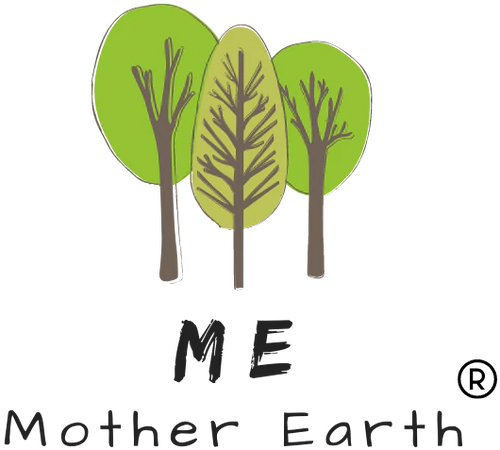November 1st is World Vegan Day—a celebration tracing back to The Vegan Society's inception in 1944. It's more than just a dietary choice; it's a lifestyle choice - one that is rooted in a commitment to nature, health, and the well being of every living creature on our Mother Earth. Beyond the act of forgoing animal products, many adopt this lifestyle for its health benefits, ethical stance, or environmental concerns. World Vegan Day isn’t just a calendar date; it's a powerful reminder that impactful change could begin with what you put on your plate.
The Environment and a Plant Based Diet
As headlines frequently sound alarms on climate change, rising sea levels, and unprecedented wildfires, there's a growing consensus that humanity must adjust its habits...(no shit..right?!) And one of those habits, surprising to many, is deeply rooted in our food system and animal agriculture. Enter veganism—a movement often seen through the lens of animal rights, but one which plays an undeniable role in environmental preservation.
Carbon Footprint of Animal Agriculture
The environmental weight of meat-centric diets is hefty. Consider this: livestock farming produces more greenhouse gases in CO2 equivalents than all the cars, planes, and trains in the world combined [Source: United Nations Food and Agriculture Organization (FAO)]. Methane, an extremely potent greenhouse gas, is more than 80 times stronger than carbon dioxide. It's expected to cause about half of the warming we'll see over the next two decades, with cows being a notable source of methane emissions. Additionally, the vast expanses of land required for grazing, the forests cleared for pastures, and the immense water reservoirs drained to sustain livestock farming are accelerating land degradation, deforestation, and water consumption at alarming rates.
Water, a Finite Resource
In an era where water scarcity is becoming the norm in parts of the world, the amount of water a meat-based diet consumes is staggering. Producing a single pound of beef requires upwards of 1,800 gallons of water when considering the water needed for the grain fed to cattle and the animal's own consumption. So why not just eat the grain instead?
It's a Lifestyle
Switching to a vegan lifestyle might seem like a drop in the ocean, but its ripple effects on the environment are palpable. Plant-based diets have a smaller carbon footprint, consuming 73% less land and substantially less water. With fewer crops raised to feed livestock, there's a decrease in deforestation and more efficient use of our food supply.
Moreover, with the innovative surge of plant-based alternatives, from meat and chicken alternatives to a plethora of nut milks, there's potential for even greater environmental savings. The vegan lifestyle isn't just about saving animals—it’s about safeguarding our planet for future generations.
It also extends further than not just eating animals, but taking other products that are derived from animals into consideration as well. From clothing, to cosmetics and personal care items, animals have long been raised as a commodity and exploited in ways you cannot imagine. At Me Mother Earth, you will never find products derived from animals, and all of our products are certified cruelty-free by Leaping Bunny.
The Healthful Horizon of Veganism
When I personally became vegan in 2019, it wasn't actually because of my concern for the environment, but rather my health. Although, I gave up beef two years prior due to environmental concerns from watching the documentary "Before the Flood." The tipping point for me, was actually the documentary "The Game Changers." It gave a new perspective on how animal products were metabolized and that a number of elite athletes switch to a plant based diet to maximize their performance. After watching the documentary, Alberto and I turned to each other, and said "whoa...want to just try it?" I never looked back.
Veganism may be rooted in an ethos of compassion and sustainability, but it has grown beyond its ethical foundation to be lauded for a plethora of health advantages. By wholeheartedly embracing a diet with diverse fruits, vegetables, and nutrient-packed whole grains, those who eat a plant based diet often experience a notable reduction in heart disease risks. Globally, it has been shown, that Blue Zones, regions where people consistently live past the age of 100, often have predominantly plant-based diets. So it's safe to say that veganism as a lifestyle intertwines principles of kindness with a strong commitment to personal health and longevity.
Ethics Behind Veganism
Veganism isn't just a diet—it's a worldview rooted in ethical considerations.
Eating vegan for one day can save resources equivalent to:
- Roughly 1,100 gallons of water
- 45 pounds of grain
- 30 square feet of forested land
- 20 pounds of CO2 emissions compared to a typical meat-based diet.
The growing interest in veganism stems not just from its potential health benefits, but also from a broader ethical standpoint, advocating for animal welfare, ecological responsibility, and global equity.
Debunking Vegan Myths: Beyond Tofu and Tempeh
In the vast landscape of diets and lifestyles, veganism often finds itself under the scrutiny of skeptics, naysayers, and curious minds alike. Riddled with misconceptions and stereotypes, veganism has been punctuated with myths that often cloud the true essence. It's time we dive deep and clear the air.
Veganism, often misunderstood and misrepresented, is more than just a restrictive diet. It's a celebration of life, a stand for ethics, and a commitment to the planet. While myths might continue to circle this lifestyle choice, it's essential to see veganism for what it truly is: a vibrant, diverse, and holistic approach to living. So, the next time someone says, "But where do you get your protein?", you'll know there's more to the vegan story than meets the eye.

